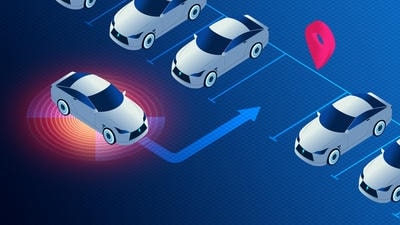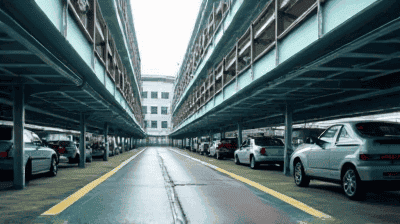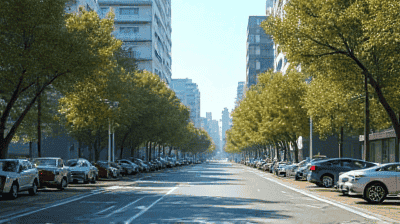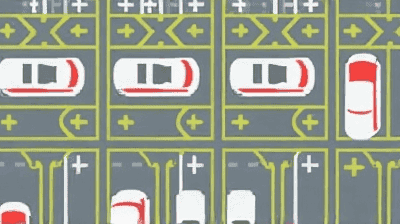
In burgeoning urban environments, the efficient management of transportation is critical for maintaining livability and reducing environmental impact. Among the contributing factors to urban congestion are the often unseen challenges of parking. As drivers circle city blocks searching for available parking spaces, significant amounts of time and fuel are wasted, leading to increased emissions and further exacerbating air pollution. Enter smart parking systems—a transformative solution designed to optimize parking management, enhance the user experience, and reduce emissions.
Smart parking systems involve the integration of technology to facilitate the efficient use of parking spaces. These systems utilize various sensors, cameras, mobile applications, and data analytics to provide real-time information about parking availability, streamline the payment process, and enhance overall parking management.
Sensors: Parking sensors are typically installed in parking spaces and can detect the presence of vehicles. These sensors send data to centralized systems to inform users about available spots.
Mobile Applications: Many smart parking solutions come with user-friendly apps that allow drivers to locate available parking spaces, make reservations, and process payments without needing cash or physical tickets.
Data Analytics: Utilizing big data and machine learning, smart parking systems can analyze parking patterns, predict demand, and optimize the availability of parking resources.
Integration with Navigation Systems: Smart parking solutions can be integrated with navigation apps, guiding drivers to the nearest available parking space and reducing the time spent searching.
Payment Systems: Automated payment options enhance user convenience by offering contactless payments through mobile apps or kiosks, streamlining the parking experience.

When drivers circle city streets in search of parking, they contribute to several environmental problems:
Increased Greenhouse Gas Emissions: Idling engines emit carbon dioxide and other greenhouse gases, significantly contributing to climate change. According to the United States Environmental Protection Agency (EPA), vehicle emissions are responsible for 29 percent of total greenhouse gas emissions in the U.S.
Air Pollution: Besides greenhouse gases, vehicles emit pollutants such as nitrogen oxides and particulate matter, which can lead to respiratory diseases, asthma, and other health issues.
Traffic Congestion: Circling for parking adds to traffic congestion, creating a vicious cycle. As congestion increases, so do emissions, exacerbating air quality issues.
Fuel Waste: When drivers spend excessive time searching for parking, they waste fuel. According to the International Council on Clean Transportation, cruising for parking can account for up to 30 percent of urban traffic.
Noise Pollution: The additional traffic generated by circling vehicles contributes to noise pollution, negatively impacting urban livability and health.
Perhaps the most direct benefit of smart parking systems is the reduction in the time drivers spend searching for parking. With real-time information readily available through mobile apps and navigation systems, drivers can quickly identify available parking spaces, minimizing the time spent circling and, in turn, reducing emissions.
By reducing idling times and emissions associated with circling vehicles, smart parking systems contribute to improved air quality in urban areas. Cleaner air can lead to significant public health benefits, reducing the prevalence of respiratory illnesses and improving overall community well-being.
Smart parking solutions optimize the utilization of available parking spaces, helping cities to manage their parking resources more efficiently. This not only reduces congestion but also maximizes the use of existing infrastructure, potentially delaying or negating the need for new parking facilities.
Smart parking apps provide a user-friendly experience, allowing drivers to reserve spots in advance, navigate to their destination, and complete transactions seamlessly. This convenience enhances customer satisfaction and encourages the use of smart parking as a viable solution.
For municipalities and parking operators, implementing smart parking systems can lead to increased revenues. By managing parking more effectively and enabling dynamic pricing based on demand, cities can maximize their earnings from parking spaces while also ensuring that parking remains accessible to all.
Smart parking systems collect valuable data that urban planners and city officials can use to inform future transportation and infrastructure projects. Analyzing parking trends and demand patterns can help cities allocate resources more effectively and develop targeted solutions to urban mobility challenges.

The initial investment required to deploy smart parking systems—including hardware, software, and infrastructure—can be a significant barrier for municipalities and private operators. Funding and budget allocation may need to be prioritized to support the implementation of these systems.
Integrating smart parking solutions with existing urban infrastructure and systems can be complex. The need for compatibility with older technologies and challenges associated with retrofitting existing parking facilities must be addressed to ensure successful implementation.
With the reliance on data collection, privacy and cybersecurity concerns can arise. Ensuring that user data is handled securely and transparently is essential to building trust among users and maintaining public acceptance of smart parking systems.
For smart parking systems to be effective, widespread adoption among users is crucial. Efforts to educate the public about the benefits of smart parking and incentivize its use may be required to increase adoption rates.
As cities implement smart parking solutions, navigating regulatory frameworks can be challenging. Collaboration between different government agencies and stakeholders is essential to align policies and support seamless integration.
Cities around the world are embracing smart parking solutions to address congestion, reduce emissions, and enhance urban mobility. Here are some notable examples:
San Francisco has implemented the SFpark program, which uses sensors and data analytics to optimize parking space allocation and pricing. The system provides real-time availability of parking spaces and adjusts prices based on demand, reducing congestion and emissions in the busy downtown area.
The City of Los Angeles has employed smart parking technology in several districts, allowing drivers to find, reserve, and pay for parking using a mobile application. This system has streamlined the parking experience and helped reduce traffic congestion.
Amsterdam's smart parking initiative includes a range of digital services that inform drivers of available spaces and optimize parking duration to reduce unnecessary circling. The city's commitment to sustainability is evident in its efforts to incorporate smart solutions into its transportation management.
Milan has implemented an innovative smart parking system that combines sensors and mobile applications to provide real-time availability updates. This system has been instrumental in reducing emissions and improving the city’s overall air quality.
Singapore has actively pursued smart parking solutions as part of its broader Smart Nation initiative. The city-state has deployed a comprehensive system that tracks parking availability, integrates payment options, and uses data analytics to enhance the user experience.

The continued advancement of sensor technology, artificial intelligence, and big data analytics will further enhance the capabilities of smart parking systems. Improved predictive analytics can provide even more accurate information about demand patterns and optimize resource allocation more effectively.
As the development of autonomous vehicles progresses, the integration of smart parking systems will become increasingly important. Autonomous cars will require these systems to locate parking spaces efficiently, leading to further reductions in emissions and traffic congestion.
Future smart parking systems may also focus on integrating multiple modes of transportation, encouraging users to consider alternatives to driving. Providing information about nearby public transit options, bike-sharing services, and pedestrian pathways can enhance overall urban mobility.
As urban planners emphasize sustainability, smart parking solutions will play a pivotal role in shaping greener cities. Implementing these systems will align with broader goals to reduce emissions, improve air quality, and enhance livability in urban areas.
As awareness of the environmental impacts of urban parking becomes more pronounced, cities may adopt policies that promote the implementation of smart parking systems. Regulatory support and incentives may encourage more municipalities to invest in these technologies.
Smart parking systems represent a crucial innovation in the quest to reduce urban congestion, lower emissions, and enhance the overall quality of urban life. By providing real-time information about parking availability, streamlining access to parking spots, and integrating with other transportation solutions, these systems offer a holistic approach to mitigating the challenges associated with car-centric urban environments.
As cities continue to grow, implementing smart parking solutions will be essential for promoting sustainability and improving air quality. By investing in technology and infrastructure, cities can create pedestrian-friendly environments that prioritize human mobility over vehicles, ultimately transforming urban landscapes into greener, healthier places to live and work.